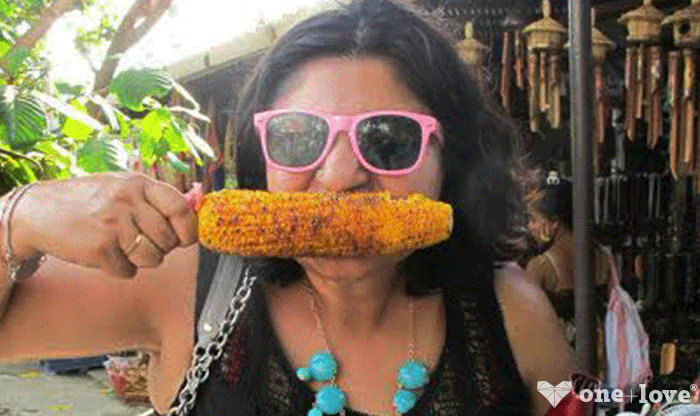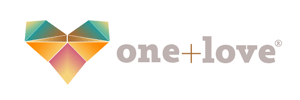
Introducing Urooj Arshad, International Youth Health and Rights Advocate
Urooj Arshad is the Associate Director of International Youth Health and Rights at Advocates for Youth. In this role she supports youth-driven organizations in Africa, Asia, Latin America, and the Caribbean in empowering young people to be strong advocates for their reproductive and sexual health/rights–with an emphasis on young women and GLBTQ youth. She has also created a project designed to address the reproductive and sexual health needs of Muslim-identified youth.
Arshad has presented at the International HIV/AIDS Conference 2010 in Vienna, Austria; the Youth Pre-Conference to the International HIV/AIDS Conference 2012 in Washington, DC; the European Science Foundation’s Conference on Religion, Gender and Human Rights 2011 in Linkoping, Sweden; the LGBT Pride and Heritage Event hosted by the White House Office of Public Engagement and the White House Initiative on Asian Americans and Pacific Islanders; the State Department; the National Press Club; Georgetown University and Princeton. She was also the keynote speaker at the LGBTQ Symposium 2013 at American University.
For 17 years Arshad has organized within GLBTQ communities of color, especially addressing issues of Islamophobia, violence, sexism, homophobia, transphobia, and ageism. She is a steering committee member of the Muslim Alliance for Sexual and Gender Diversity (MASGD), which seeks to address the intersectional impact of Islamophobia, homophobia, and transphobia. Arshad has been a member of the Center for American Progress’ Women’s Health Leadership Network and is a current member of its Faith and Reproductive Justice Institute. She has been a fellow with the American Muslim Civic Leadership Institute and is a current member of the Kalamazoo College Arcus Center for Social Justice Leadership Global Advisory Board.
Arshad’s awards include the National Queer Asian Pacific Islander Alliance’s 2012 NQAPIA Community Catalyst Award and the Young Women of Color HIV/AIDS Coalition’s We Speak Award.
What connections need to be made between fighting Islamophobia and championing LGBTQ rights?
For the past seventeen years, I have been actively engaged in working around issues of LGBTQ rights–specifically within the context of immigrant, people of color, youth, and Muslim communities. Post-September 11, I have seen the way Islamophobia and the so-called “war on terror” have created vast systems of isolation for Muslims and the way that the mainstream LGBTQ and feminist communities have perpetuated this Islamophobia.
From mainstream feminist organizations condoning the war on terror to supposedly “liberate” the women in Afghanistan to being called the “most popular group at the Al-Qaeda conference” while marching in the DC Pride Parade (yes, that really happened), all Muslims are simultaneously viewed as terrorists or in the other extreme–especially when it comes to LGBTQ Muslims and women–as those to be “saved.” Mainstream discourses make an assumption that LGBTQ Muslims are non-religious–somehow outside the realm of mainstream Muslim life, somehow not impacted by Islamophobia, somehow not quite able to be both LGBTQ and Muslim.
I am on the steering committee of MASGD and our work sits at the intersections of these identities and addresses the simultaneous oppressions of Islamophobia and homophobia/transphobia. The work includes bringing together LGBTQ Muslims to discuss spiritual life; religious texts; anti-oppression; marching in pride parades to show our visibility; helping folks get asylum; providing spiritual counseling; developing and advocating for scholarship that looks at Islam in the context of LGBTQ issues; and so much more.
You seem to revel in your work with LGBTQ youth from all over the world. What do you love about it?
I had the wonderful opportunity to go to Kampala, Uganda in 2012 to work with a youth-led organization that works with LGBTQ communities. Before I left, I had some safety concerns because the organization had been “outed” to the government and their offices were under surveillance. As I landed in Kampala after a 24-hour journey from Washington, DC and was met at the airport by the young person I was working with, my anxiety immediately dissipated. I am amongst my LGBTQ community, I thought, and regardless of the difficult and hostile political and cultural climate, I couldn’t help but be lifted up by the celebratory space the LGBTQ community often creates via resistance and organizing.
Throughout my time in Uganda, whether hanging out at a LGBTQ dance club or visiting the LGBTQ clinic, I was constantly reminded that these are precious spaces, created out of sheer will power (and run often by folks who volunteer their time and resources) and an intense need to fight for the right to live with humanity and dignity. In the shadow of the murder of David Kato, a prominent LGBTQ activist, I was amazed by how many activists continue to show up and work, despite the threat of violence, harassment, and arrest. And not just work but celebrate and laugh and hold each other in safety as the state won’t protect them. And one message that they wanted me to take back was to make sure that people in the U.S. know about the good things that were happening and not just the horrible things we hear on the news.
As someone living in the U.S. and working with LGBTQ youth living in the global South, I am always trying to figure out the delicate balance of how to talk about what is happening in the world with the nuanced understanding of the realities of these communities. After all, I am from Pakistan, and I know how easy it is for the West to see us only as victims, only something that the West can “save.” So even though my heart breaks every time I hear about the news of violence towards the LGBTQ community in the global South, I also try to remember the incredible resistance that the communities on the ground are engaged with. Whether it is a LGBTQ-friendly cab service in Jamaica or a literacy program for transgender women implemented in Pakistan, communities are making change on their own terms, in their own contexts–and one thing is for sure, LGBTQ people will always find a way to resist and this is why I love the work!
What might your femme manifesto contain?
My femme manifesto is to show up in the world with as much bling and color as possible; to never pack more than I can carry on my own (yes, a difficult task with all my bling!) while traveling; to see as much of this wonderful world as possible; to gracefully dash through airports in heels and pearls; to live with courage; to connect as many wonderful people in my life to each other as possible and to always remember to represent the city of Karachi, the city of lights, the city where I learnt my first rendition of femmeness.

Recent Comments